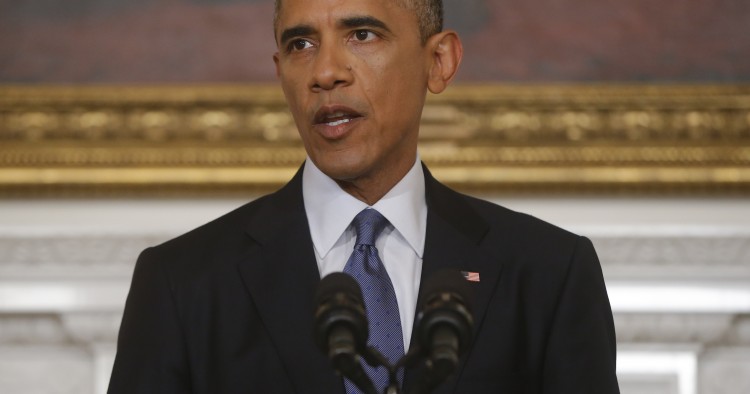Read full article on Foreign Affairs.
On Thursday, U.S. President Barack Obama authorized limited air strikes on militants in Iraq to stop their advance toward Erbil, where a number of U.S. diplomats, civilians, and military personnel reside. He also promised to send aid to refugees fleeing the militants’ advance. The next morning, warplanes struck the first targets as the United States rushed assistance to a Kurdish-speaking religious minority, the Yezidis, which had recently been pushed into the mountains by the Islamic State of Iraq and al-Sham (ISIS). Air strikes are undoubtedly necessary for the narrow purposes stipulated by Obama. But they will have a wide range of unintended consequences -- some relatively manageable, others less so.
Despite Obama’s carefully framed justification for the strikes -- to protect Americans and to help minorities -- the inadvertent beneficiary is the Iraqi government, which gets to retain its free-rider status. So far, Baghdad’s response to the current crisis has been the political equivalent of rearranging deck chairs on a plunging Titanic. Prime Minister Nouri al-Maliki and his allies have done nothing to salvage the Iraqi state, despite the selection of a new president and speaker of the parliament, or to fulfill the prime moral directive of any government: to protect the population from harm. The strikes will almost certainly reassure these officials that their torpor has been justified, that others -- Iran, the United States, or both -- can be expected to do the job. In turn, Iraqi officials’ will to counter the ISIS threat will further diminish.
Second, air strikes will unavoidably mark an already vulnerable minority with the stain of American favoritism. The salvation proffered by American arms now will compromise the group’s status later on -- not just with the militant fighters currently lunging for their throats but with much of the Iraqi population. Although it is still too early to say that the evolution of modern Middle Eastern politics points to the end of the road for Christians and other minorities, things are heading that way; air strikes and aid or not, the Yezidis’ future is bleak.
Third, air strikes will almost certainly unite Sunnis against other sects and boost support for ISIS while fueling disdain for the United States. The gist of the social media commentary on the strikes has been this: For years, the United States has tolerated -- or perhaps even facilitated -- a violent onslaught against Sunni Muslims. The very instant that other groups are threatened, the United States intervenes immediately against the Sunnis. And who benefits from this intervention? The Shia. It is a potent narrative, which the air strikes, however unavoidable, will appear to affirm. Indeed, impolitic language aside, it is hard to dispute the idea that the Shia, particularly Maliki, who has presided over a state that privileges that group while marginalizing Sunnis, will reap the gains of this campaign, at least in the short term.
Continue reading at Foreign Affairs.
The Middle East Institute (MEI) is an independent, non-partisan, non-for-profit, educational organization. It does not engage in advocacy and its scholars’ opinions are their own. MEI welcomes financial donations, but retains sole editorial control over its work and its publications reflect only the authors’ views. For a listing of MEI donors, please click here.












